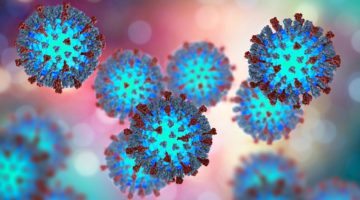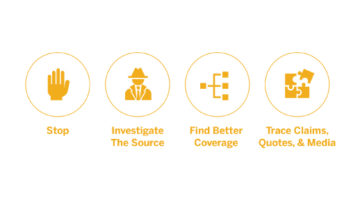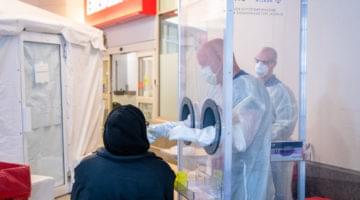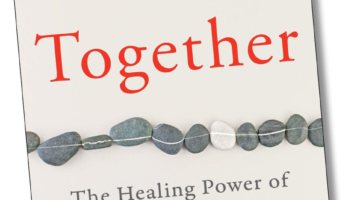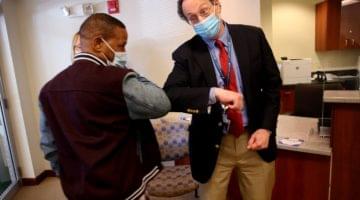
To better understand the phenomenon of pandemics, it helps to know what infectious diseases are and how medicines mitigate or eradicate them.
“Infectious diseases can range from something as simple as a run-of-the-mill cold to serious infections like COVID-19, malaria, or tuberculosis,” says Daniel Kuritzkes, MD, chief of the Division of Infectious Diseases at the Brigham.
These infections come from organisms like bacteria, viruses, fungi, or parasites, and can be passed to humans through direct contact with other humans, insects, or animals, or spread through the air or by touching surfaces.
Before vaccines, developing immunity required contracting a disease—and then relying on the body to fight it off and develop antibodies against future re-infection. As remarkable as the human immune system is, it cannot universally prevent premature death or disability, especially from the most serious infections.
Most vaccines introduce pieces of a virus or microorganism to teach the body’s defenses how to recognize disease cells and destroy them. Today, vaccines can prevent or reduce the severity of illnesses such as influenza, human papillomavirus (HPV), smallpox, polio, measles, shingles, and mumps. Some vaccines, as for influenza, are most effective when administered regularly. Others, such as for polio, measles, and mumps, offer protection for years, or even a lifetime.
Antimicrobial medicines can also destroy or slow organisms responsible for illness. Antibiotics treat infectious bacterial diseases (such as strep throat, sinus infection, or conjunctivitis); antivirals treat viruses (such as influenza or herpes); antifungals treat fungi (athlete’s foot or yeast infections); and antiparasitics treat parasites (tapeworm or malaria).
“Beginning with penicillin in 1929, the discovery of antibiotics was a major advance in healthcare,” Kuritzkes explains. “Along with vaccination, antibiotics probably had the biggest impact on improving life expectancy in the last century.”
He stresses that the best way to overcome COVID-19 will be for the medical community to develop, refine, and widely administer vaccines and antiviral medicines that halt it. Until then, the best tools we have are the ones we’ve had all along: masks, hand washing, physical distancing, and isolating people who are sick.



